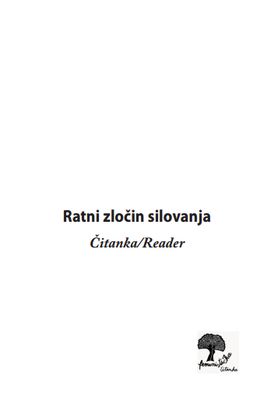
We kindly inform you that, as long as the subject affiliation of our 300.000+ articles is in progress, you might get unsufficient or no results on your third level or second level search. In this case, please broaden your search criteria.

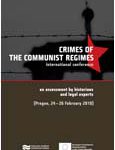
My name is Marina Jelic and I’m from the Republic of Serbia. In my case the information where I come from is not irrelevant to the subject of this meeting in general. Because, as you may be aware, the country that I come from was, until the beginning of 1990s, part of a larger administrative territory – the Socialist Federal Republic of Yugoslavia. It is interesting to note that collapse of that complex country coincides with the fall of Berlin Wall, or collapse of communist systems in countries of Central and Eastern Europe. From the previously mentioned it is given to conclude that the communist regime can be only discussed in context of Yugoslavia (not Serbia). Serbia, which, aft er the collapse of federal country, went into wars, was in a particular way totalitarian organized state (as the most of former Yugoslav republics), which was in a way logical given the situation of open (or covert) war that prevailed in those newly created countries. It is not possible, however, to talk about classic communist model of government. (One party system, state ownership of property and materials for production, lack of freedom of press, total enclosed mass media, and so on…)
More...
Dear participants of the conference Crimes of the Communist Regimes, I can’t unfortunately be present in the conference, as I am taking part on a European Parliament’s fact-finding delegation visit to Belarus. Twenty years after the fall of the Iron Curtain and almost six years after the accession of post-communist countries to the EU, it is natural to ask how one should deal with the past of the communist states. How should we evaluate the actions of the communist regimes behind the Iron Curtain? For me the points of departure are definitely human rights and justice. It is undisputed that the communist regimes violated human rights, as the Resolution of the Parliamentary Assembly of the Council of Europe of 25 January 2006 states. However, it is not as clear how we should deal with this past. In my contribution I will touch upon the question of the power of interpretation, the need for a free and tolerant public debate, the complex issue of transparency and the diverse roles of politicians and researchers in Vergangenheitspolitik. The question is: who interprets the truth?
More...
Were the killings on the Inner German border a crime against humanity? Twenty years after the fall of the Berlin Wall, nearly two decades after the demise of the GDR, this question may seem passé. Why should we be interested in a question, when from the criminal justice point of view the issue of injustices in the GDR has been closed for a long time? We can put forward two reasons. The first is purely academic interest, without benefit, which in this concrete case gathers impetus from the fact that answers put forward to date have not been satisfactory. The second is that the border policy of the GDR regime is of such historical significance that it calls for evaluation by means of normative criteria for judging the criminal responsibility of individuals in the framework of concrete prosecutions. Clear proof of this is seen in the recently begun, passionate debate on the classification of the GDR as a country afflicted by injustice. Finally, this presentation should offer the first thoughts at this conference on to what extent the international legal category of crimes against humanity can play a role in the legal processing of the injustices of Europe ’s Communist regimes.
More...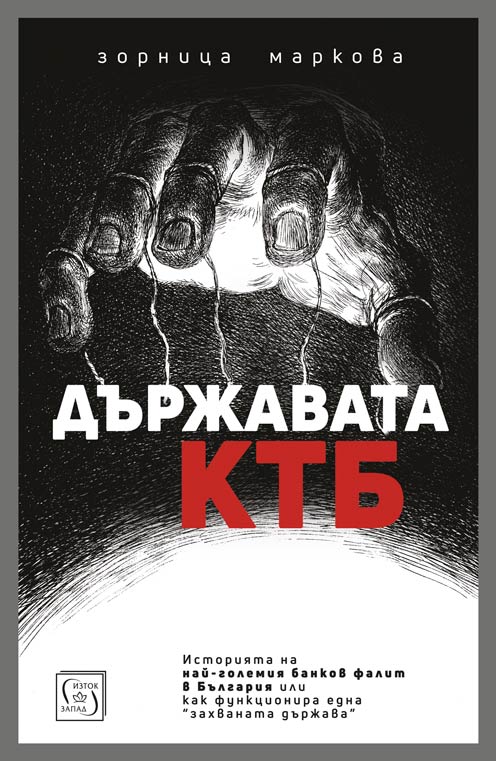
This book is the result of a two-year journalistic investigation that traces the history of Corporate Commercial Bank from its origin to its bankruptcy (1994-2014). The investigation was conducted on the basis of dozens of meetings with direct participants or witnesses of the events, representatives of state structures, political parties, business, regulators. In the process, hundreds of official and informal documents have been analyzed. Access to information by Bulgarian and international organizations has been requested many times. The collected facts, data, documents, and exclusive testimonies included in this book contain for the first time conclusive evidence of political corruption in Bulgaria. The aim of the KTBfiles project is to show the genesis of the "CCB model" (Corporate Commercial Bank model) and the technology of its expansion to magnitude, which pressed all key state institutions to the wall. The book explores the circumstances that made this vicious model possible, as well as the mechanisms for its eradication. This makes the investigation much more comprehensive, multi-layered and important than the chronology of bank bankruptcy, whether it is the largest in Bulgarian history. This qualitative journalistic investigation answers not only to the question #WHO but also to the questions how, why and especially what follows if we stop asking and live permanently with civil indifference and cynicism.
More...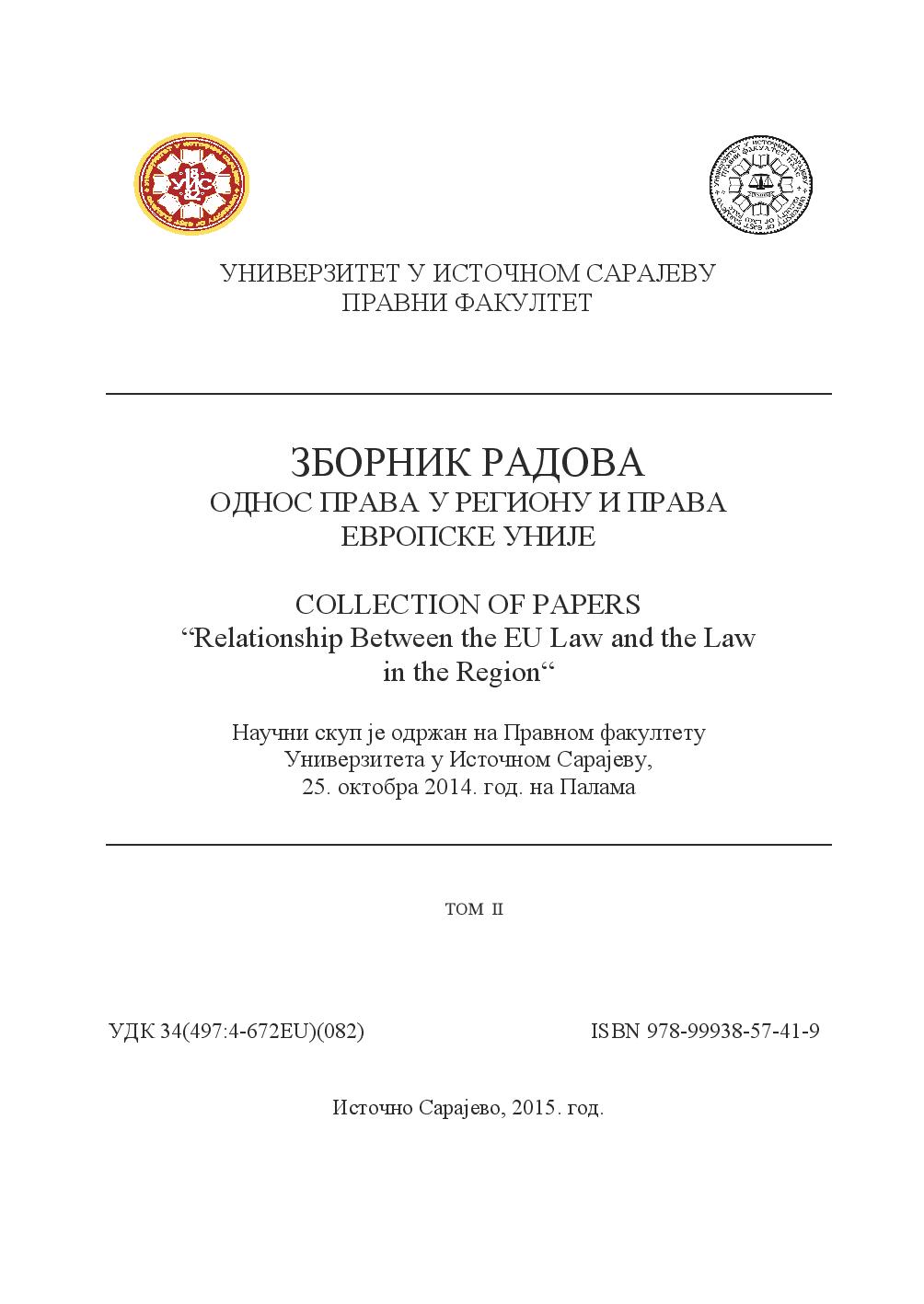
Psychological theories have in common that violent crime is definitely interpret the psychological characteristics of personality, thereby disenfranchising or completely ignoring the importance and influence of social factors. For these reasons, among them are often observed psychologism and psychologizing. Taking only one side of the crimes for their whole(pars pro toto) leads to the etiological explain it as merely a psychological phenomenon. Try to get a limited number of facts build adequate scientific theory proved to be ineffective, and if its appearance persisted, practical assessment did not provide convincing evidence in support of their accuracy,which is why they usually remain at the level of hypothesis.Recognizing that the absolute psychological characteristics of personality unacceptable psychologically oriented authors today tend to certain types of criminal behavior linked to the relevant psychological characteristics of the offender. In doing so, one must not disregard the influence of the environment on the formation of the personality of offenders, and that personality traits and external factors act simultaneously and intertwined,which is why only conditionally be separated. Personality is not autonomous in relation to the social context; on the contrary, man and society are closely linked, interdependent and permeate entities. Man necessarily occurs in society (on his subjective totality, it carries in itself, of course, not as a simple reflection of the experience, but as revised), a society can not exist without man and independent of him. Given that the whole of human activities is an unbreakable unity of objective and subjective, social and personal, it is necessary to examine the complex relationships the individual - group -society and the contradictions in them, often trying some of these offenses.Only such an approach can aspire to a more complete explanation of violent crime, which was for many years a very serious problem in the European Union and Republic of Serbia.
More...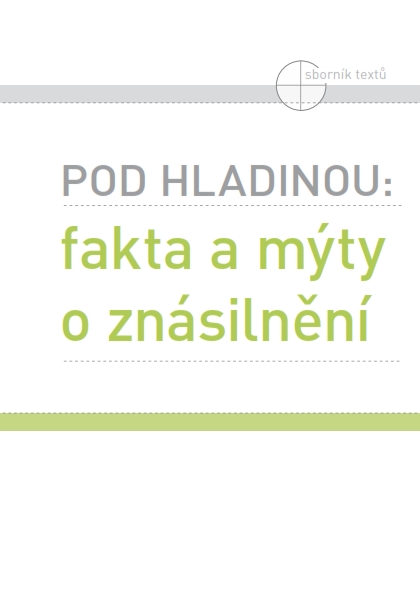

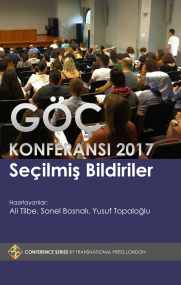
Jean Genet, gerek yazınsal kariyeri, gerekse özel yaşamıyla kendisinden çok fazla söz ettirmiş Fransız düşünür, deneme ve roman yazarıdır. Şiirleri de olan yazar yazınsal kimliğini daha çok tiyatro oyunlarıyla kanıtlamıştır. Onu ayrıcalıklı veya farklı kılan yanı yalnızca yazınsal alanla sınırlı değildir. O aynı zamanda toplumsal sorunlara da sırtını dönmeyen bir politika aktivistidir. Fransa’daki toplumsal hareketlerle sınırlanmayan bu savaşım Filistin mücadelesinde olduğu kadar Amerika’da Kara Panterler hareketine değin uzanır. Yazarın özgünlüğü yaptığı seçimlerden kaynaklanır. Jean Genet yazını seçmemiş, onu kendisini anlatmak için bir araç olarak görmüştür. Bir bakıma yazınla tanışmasını sağlayan durum aslında toplumca kabul görmeyen ve onunla özdeşleşen suçlarla dolu özel yaşamıdır denilebilir. Bu saptamanın yerindeliği yapıtlarında ele aldığı konu ve izlekler dikkate alındığında daha açık biçimde ortaya çıkacaktır.
More...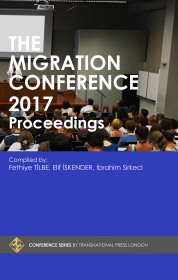
The aim of this paper is to investigate immigrant female killers on five American television series, from a psycho-social perspective, broadcasted in Spain from 2000 to 2015. On the one hand, in light of exploring the profile of female criminality in order to reveal the bias in fictional female characters, whenever they commit death crimes voluntarily, and, on the other hand, to raise awareness of the most common personality disorders that they tend to have, so as to foster a socially responsible approach of the media production. The selection of the research topic, responds to the striking impacts of the combination of media and psychology in the human kind and in society, and its power in establishing stereotypes of female gender, whenever female protagonists appear on the small screen. Whenever television programs focused on immigrants, a massive employment of negative stereotypes has been observed assigned to the image of the immigrant in all series and also a correlation between reality and fiction.
More...
The human trafficking is widely thought to be the modern form of slavery. It started before many years and still exists. Nowadays a great number of people, especially women and children, are trafficked, mainly from poor to developed states, in order to be exploited either for sex or for labor. The Western societies, including the international organizations and institutions, have taken measures, as they have tried to eliminate it. The most characteristic attempt is the Palermo Protocol. However, the legislation has been proved ineffective, therefore the states in collaboration with the organizations should realize the basic dimensions of this phenomenon and legislate based on them.
More...
Many stories have been told of how ‘hyenas’ facilitate undocumented migration and in the process negotiate and protect migrants from the much feared magumaguma who prey on the ‘innocent lives’ of would-be migrants desiring a better life in South Africa. The paper relies on first hand accounts of individuals who have crossed the Limpopo River and Zimbabwe-South Africa border as undocumented migrants. It utilises qualitative in-depth interviews of Zimbabwean migrants in Johannesburg. These individuals have had to deal with some, if not all, of the following: ‘hyenas’, crocodiles, magumaguma and the malayitsha. This paper demonstrates the central role of human smugglers such as the malayitsha and hyenas/impisi and the precarious nature of undocumented Zimbabwean migration showing the sheer will to survive against all odds; migrating to a perceived better life. Death will not deter migration or the aspiration to change one’s life by migrating. The paper creates a good case for the need for further research targeting the magumaguma and the malayitsha so that a critical mass of literature can be created on these human smugglers. This paper is important as it comes up with a conceptual framework on understanding undocumented Zimbabwean migration to South Africa.
More...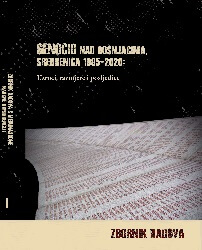
The paper discusses the international obligations of states and international organizations, which derive from the 1948 Convention on the Prevention and Punishment of the Crime of Genocide. Likewise, the Convention is an international instrument that is an expression of general customary international law. Therefore, it binds the contracting state parties and the non-contracting state parties. The paper analyzes the obligations to prohibit the direct commission of the crime of genocide, non-participation in its commission, prevention and punishment of the perpetrators of this international crime. As a separate chapter, the article deals with particular consequences created for states (and international organizations) following the violation of obligations under the Convention. As these are serious breaches of the obligations arising from the peremptory norms of general international law, a separate and aggravated legal regime of responsibility for states (and international organizations) is therefore provided in international law. In addition to three forms of reparations: restitution, compensation and satisfaction, it refers to the application of other sanctions (measures).
More...
Numerous crimes against children were committed in the aggression against the Republic of Bosnia and Herzegovina (1992–1995). In this paper, the subject of research will be a review of crimes against children in Sarajevo, Mostar and Srebrenica. Numerous documents, data, statements, information, findings and numerous verdicts of convicted war criminals before the ICTY and before domestic courts testify to the crimes committed in these three cities. The mass and manner of committing crimes against children in Sarajevo, Mostar and Srebrenica, as examples of crimes against children throughout the Republic of Bosnia and Herzegovina, prove that the aggressors did not have a sensitivity to the youngest and most protected category of civilians.
More...
Više nego išta drugo, zaborav i prešućivanje smiruju savjest zločinaca. Praštanje neoprostivog zločina jeste zazivanje novog zločina. Dužni smo raskrinkati zločince objelodanjenom istinom, ne skidati ih sa stupa srama – nikada. Ponavljajmo riječ “Srebrenica”, podsjećajmo na zločin genocida u svakom trenutku, danju i noću, neprestano, da ga i potomci zločinaca, i potomci žrtava, kao i sve buduće generacije svijeta, uvijek imaju na umu i nikada ne zaborave. Za to su nam potrebni: a. svjedoci; b. dokazi. Jedan od onih koji ovu najveću ljudsku moralnu obavezu svjedoka zločina izvršavaju na najbolji način jeste Kadir Habibović. Umjesto nijeme žrtve, sam Bog kao da je htio da on postane gromoglasni svjedok genocida. Njegova knjiga Život protiv smrti postala je vječni stup srama za sve zločince genocida u Srebrenici i svojom snagom istine pokrenula je klizeće brdo dokaza. Ovo je prilika da još jednom podsjetimo i zločince, i žrtve, kao i cijeli svijet, na zločin genocida u Srebrenici.
More...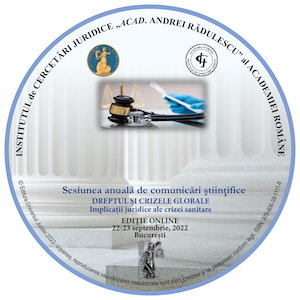
The countries that are addressing today's societies, whether caused by crises such as the multi-dimensional health crisis that erupted at the end of 2019 or caused by other events, have become a real concern. The reseminence of communities to any kind of aggression depends largely on the rules they are guided by, but also on their ability to adapt each field of activity to new realities. Each subsystem of the social system, such as the medical system, the education system or the economic system, is governed by the law system, which incorporates the general rules governing each of them. The legal system in general and criminal law, together with criminal sciences, must provide the conditions for respect for the main social values even in times of crisis. The clearer the rule of law system and the clearer it has the capacity to quickly and after unsound procedures to create fair and predictable laws that respond to crises, the more social system in general will gain greater societal resilience. Societal resilience is one of the main attributes of society that can make it more resilient and adaptable to any threats. This can best protect it from a potential increase in crime in crisis situations, provided that clear, predictable and fair laws are generated.
More...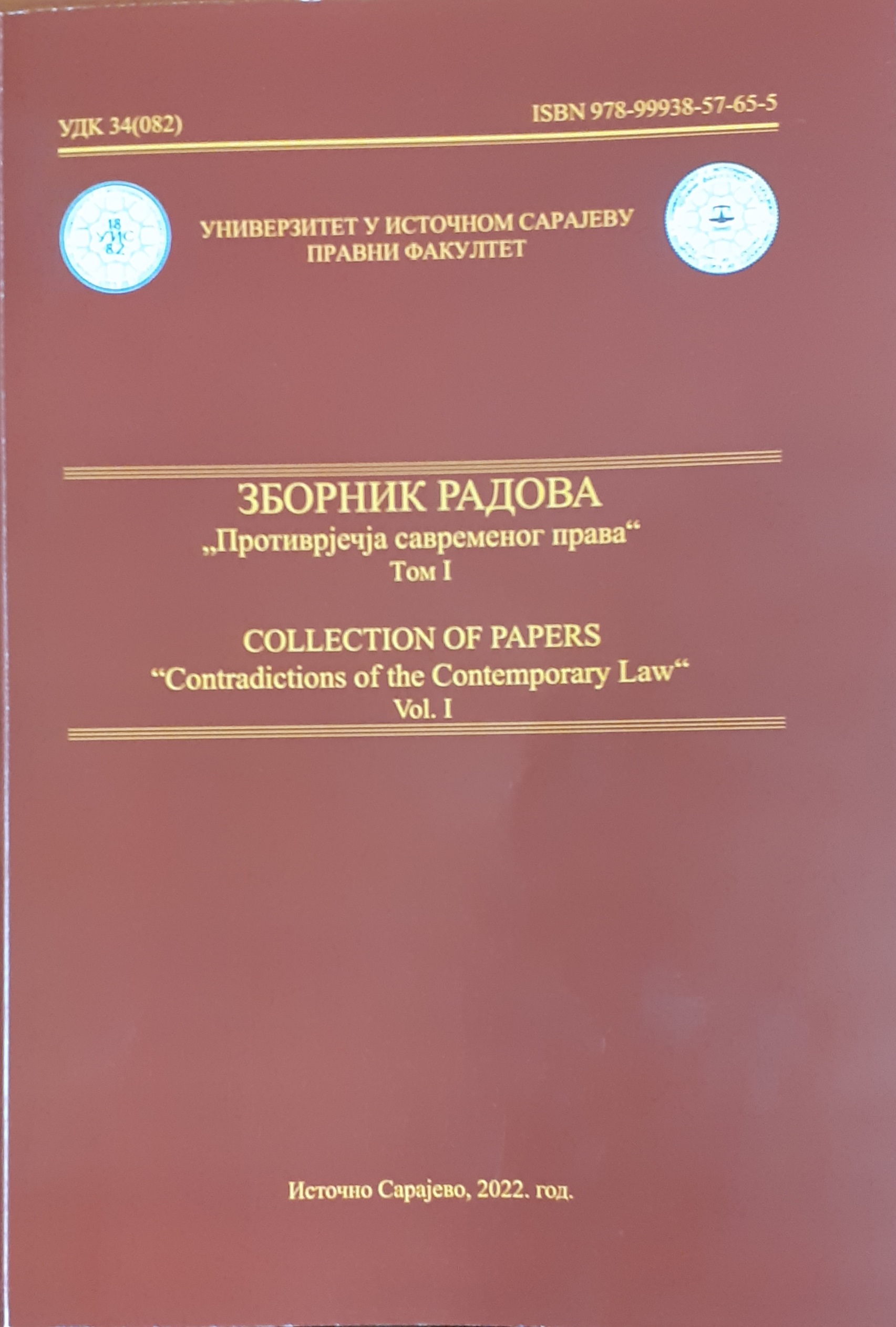
This paper deals with relevant issues related to the establishment and operation of the ICTY and ICTR. The start in premise is the principle of sovereignty in international law and its external form, i.e. suprema potestas. In this sense, the principle implies Independence within the norms of international law, as a counterpoint to absolute sovereignty. As far as the establishment of the ICTY and ICTR is concerned, both were established according to the same pattern, resolutions of the UN Security Council.As the ratio of the establishment, the relevant resolutions state the punishment of the persons responsible for the committed crimes, on the one hand, and the establishment and maintenance of peace, on the other. Differences exist, however, in the jurisdiction of the tribunal ratione materie. According to Resolution 827 of 1993, the competence of the ICTY is limited to serious violations of international humanitarian law, and the competence of the ICTR includes the crime of genocide. Furthermore, the author examines the issue of the legal effect of the Law on Cooperation with the ICTY, which was adopted by the State Union of Serbia and Montenegro in 2002 and 2003. The author finds that the effects of the Law are limited in terms of the recognition of the Tribunal in foro interno, as a legal basis for the cooperation of competent internal authorities with the Tribunal, without implying the recognition of the Tribunal in foro externo. Based on the provisions of the relevant resolutions of the Security Council, the author finds that, in the light of the provisions of general international law, the establishment of the ICTY and ICTR is, by its very nature, an unprovided form of international intervention in the context of peace-building. The author pays special attention to the question of the authority of the Security Council to establish judicial bodies within the measures provided for in Articles 41 and 42 of the UN Charter, the establishment of the Tribunal and the principle of the rule of law, and the jurisdiction of the Tribunal and the principle of competence de la competence. In the second part, this paper deals with the relationship between principle of sovereignty and the rules of international criminal law applies+d by the Tribunals.
More...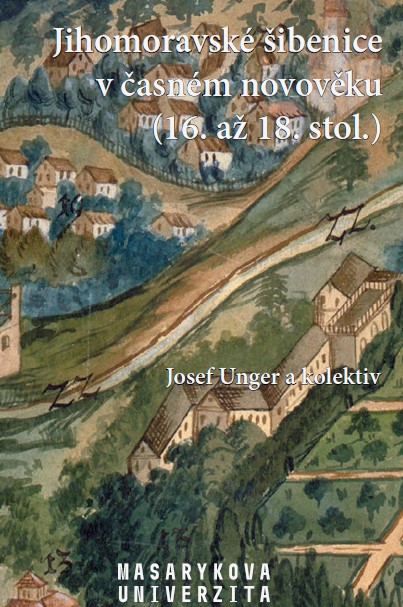
The places where the gallows stood still carry the name Gallows Mountain (Galgenberg), Justice (Gerichtsberg), Golgotha, Am Goling, Gallows, On gallows and so on. From the end of the 15th to the 18th century there was a process of replacing wooden gallows with brick gallows. A specific feature of gallows in central and northern Moravia is their quadrilateral ground plan in the shape of a square or rectangle, known from archaeological research and a description in Brno in 1788. The construction or repair of gallows was a complex matter in which many craftsmen had to participate due to the problems which could potentially discredit the workers as work on gallows was considered dishonourable. This is evidenced by documents from Šatov from 1661, Znojmo from 1650 and Brno from 1764. Besides brick gallows, wooden gallows (Schnellgalgen), known from Brno from 1603 and 1642, were also built for executions. Another place of execution of the death penalty by decapitation were beheading places (Rabenstei, Köpfhaus) existing in Brno, Znojmo or Tišnov. The description of the beheading place from Brno is know from 1788.
More...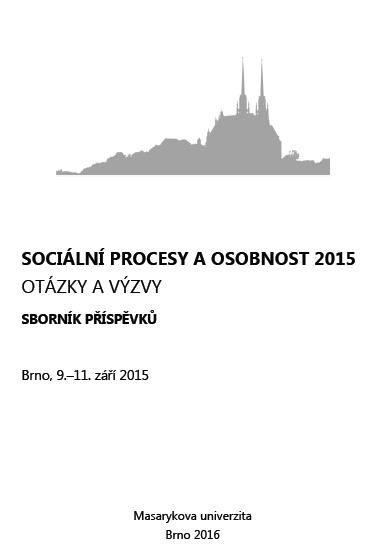
Presented study analyzes the demographic and psychological predictors of subjective perception of safety, which was studied by the fear of crime, behavior and cognition. Demographic predictors represented gender, age, education, country and previous victimization. Psychological - a risk tendency, conservatism and the need of structure. The analysis included 1847 respondents. The results suggest that individual assessment of the safety were affected by gender, partly by psychological characteristics.
More...
This article consists of 3 sections: The first section offers an introduction to the major notions of surveillance studies such as surveillance society, privacy, transparency etc. It is argued that the so-called ‘liberal democracies’ are no longer so liberal when it comes to surveillance. Pervasive surveillance by twin big brothers (ie states and corporations) over all the people are justified on the basis of crime prevention, security, terrorism or profit maximization. In the wake of Snowden revelations that magnified and even confirmed the suspicions about surveillance, anti-surveillance movements have been in the making. They are still weak and quite fragmented, as it is rare to see that democracy movements busy with their other priorities are interested in data justice issues. So we have a set of suggestions for anti-surveillance activism. Thirdly, we tried to reflect on alternatives to mass surveillance. As it is considered to be inevitable, we need to think about how to transform it and transform to what. Burgeoning notions such as sousveillance, equiveillance and coveillance are discussed within this context. We propose that anti-surveillance movements in a more socially conscious form should join hands with wider social justice movements via the notion of data justice.
More...